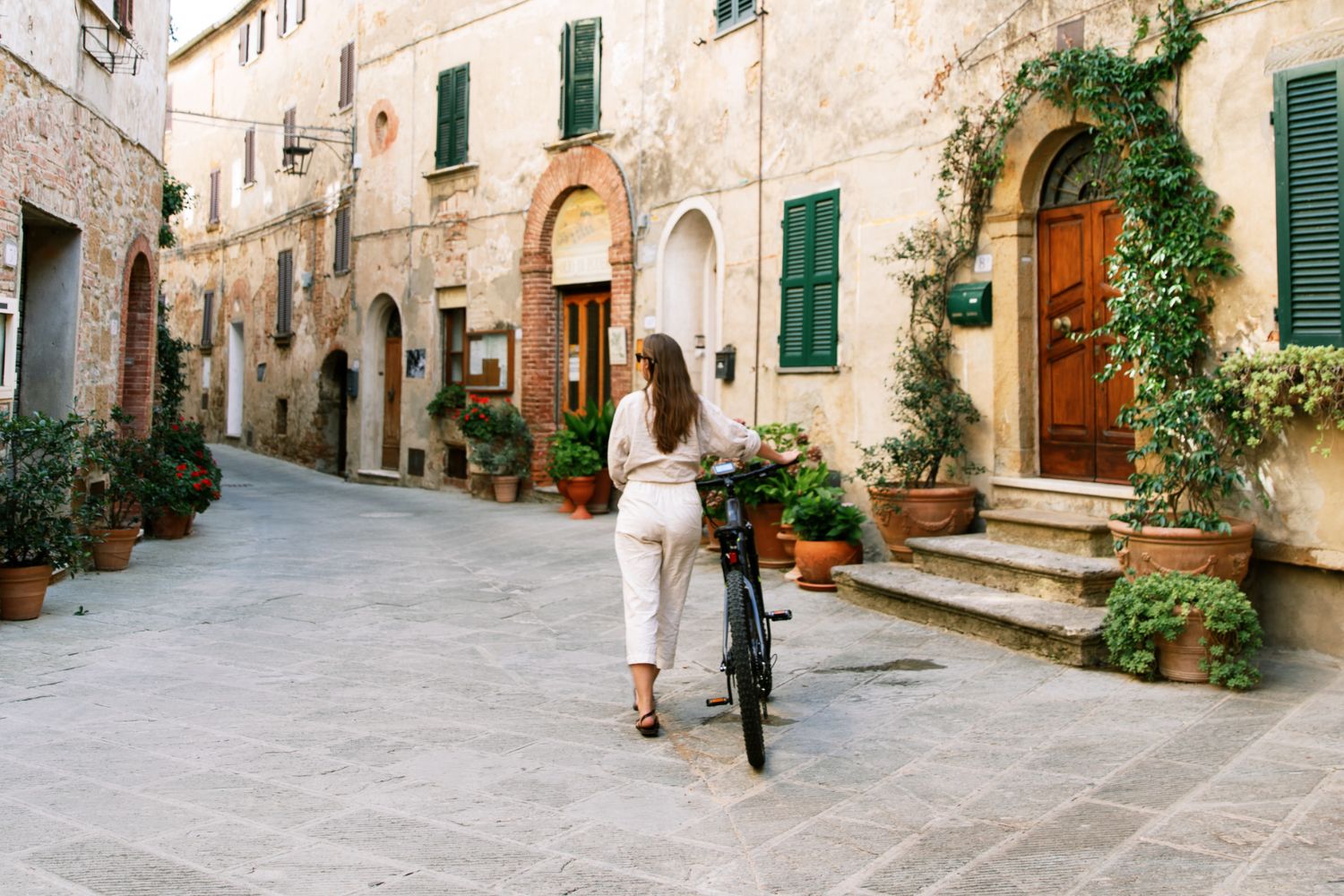
The liberating power of solo travel and microfreedoms
Ordering takeout from a place your spouse doesn’t like, while they’re asleep. Going to an ice cream shop during the workday by yourself. Arriving home 45 minutes before the nanny leaves and sitting in your bedroom staring out the window. These small acts, and others like them, would not have impressed me in my twenties, but feel gloriously luxurious now — so much so that my friend Harpreet and I coined the term “microfreedoms” to describe the concept.
This spring, as I anticipated a solo vacation, I kept returning to the idea of microfreedoms again and again. For the past few years, my husband Josh and I each have tried to take some time alone. He started the tradition, spending a few days in Marfa, Texas, which is a six- or seven-hour drive from our house in Austin. It was so restorative for him that he encouraged me to do the same. To us, these retreats feel like a necessary piece in the formula of making our marriage and owning a business together work.
For my first solo trip, in early 2019, I took a short drive to the Texas Hill Country, seeking quiet. My most vivid memory of the weekend? My grim determination to uncover some insights about how to feel happier and more fulfilled: doing exercises from a self-help workbook, taking personality tests, running, meditating. In 2020, during the early pandemic, I tried a staycation. While in many ways it was relaxing to have no plans while the rest of my family did their normal routines, the responsibilities of life intruded. I did spend plenty of time reading and napping, but I also cleaned out my closet and organized keepsakes, which were not rejuvenating activities for me.
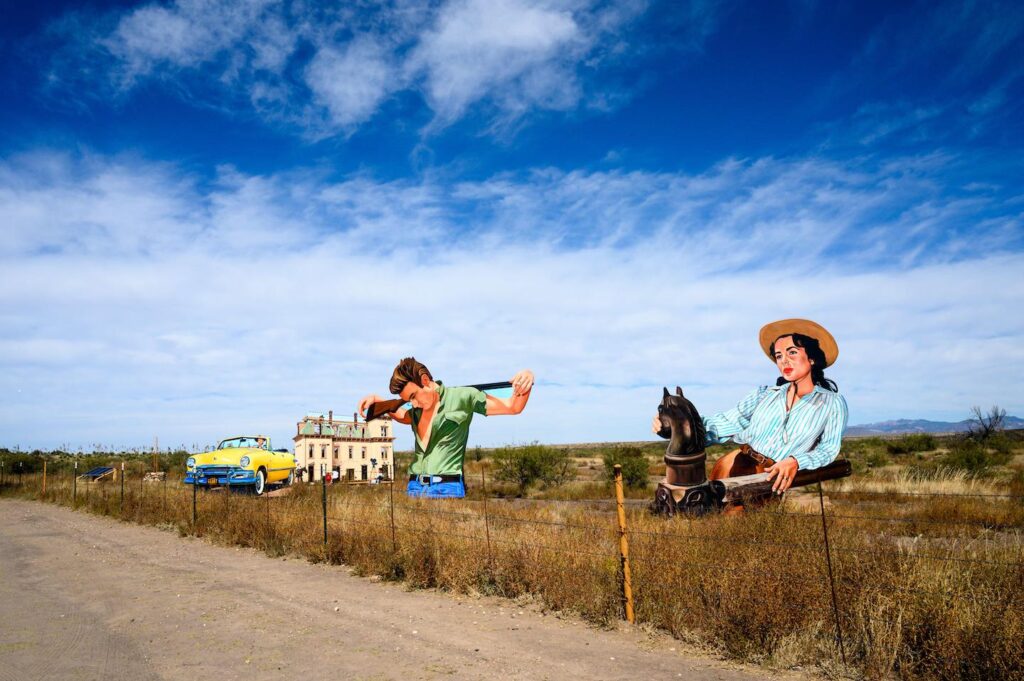
By my third try, in April 2022, I had figured some things out.
As a mother, wife, daughter, friend, and owner of a business with 30 employees, the majority of my time is spent thinking about and serving others’ needs. I like that about my life; I like that there’s a big variety of people to love in different ways. What’s frustrating is how difficult I find understanding my own desires. (And communicating them, if I know what they are, is a whole other challenge.) Even when I was alone for a few days, a strong internal voice kept telling me what I should be doing to justify the extravagance of time on my own.
For me, embracing microfreedoms also meant finally understanding that I needed a break from obligations and feeling pulled between the competing shoulds in my head — between work and sleep, or my children and my parents. More than anything else, I wanted the should voice to take a break.
When I tried to imagine where I might go, I kept picturing somewhere green. Nowhere close to Austin felt green enough, and finally I decided to fly to the Pacific Northwest. Researching day trips from Seattle, I found Whidbey Island, which online travel sites described as having some of Washington’s best state parks, as well as promising-looking restaurants and the possibility of seeing an orca from its shores.
Leading up to the departure date, I mentally prepared for how I’d exercise microfreedoms on the trip. I bought a ticket to ride a whale-watching boat and booked a few dinner reservations. When worries popped up about whether I’d made the best choices, I reminded myself that my only real goal was to follow my inclinations. I made a pact with myself that I could bail on any of my booked plans and do whatever felt enticing in the moment.
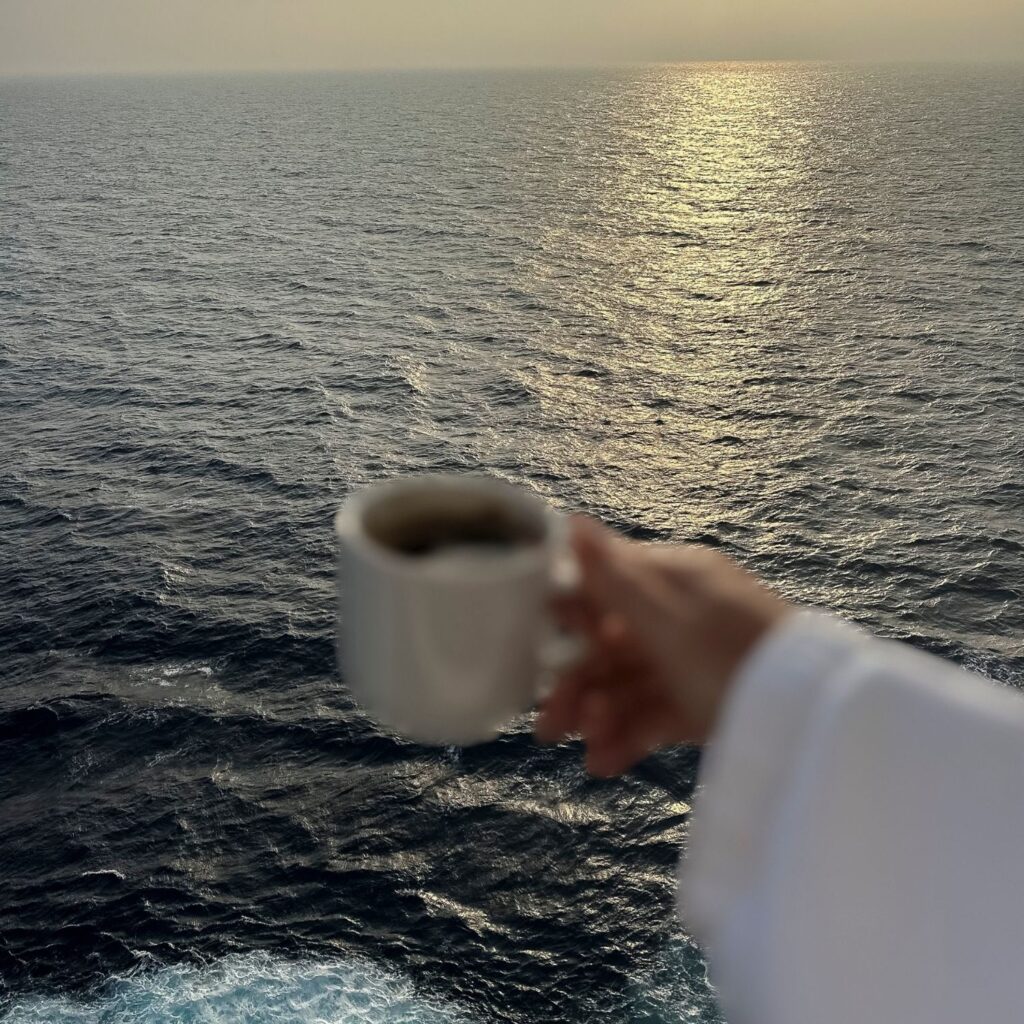
When I arrived in Seattle, my ability to know my own mind was put to the test immediately. I had made a loose plan to eat at a restaurant in Pike Place Market that Josh recommended. Walking around the market, with the crowds and the cluttered shops, I started to feel like it wasn’t where I wanted to be. When the restaurant I was looking for turned out to be closed, I knew exactly what I would have done had I been with my family: Turned around, found another well-reviewed restaurant in the market, and made the best of it. If my husband had really pressed and asked, ”What do you want?” my mind would have been so focused on what would be logistically easiest for my companions, I wouldn’t have known how to answer.
I stood in front of the closed restaurant feeling a bit tormented, my mind scrolling through possibilities: What was the closest? The healthiest?
After several minutes of spiraling, I realized what I wanted was a particular burger I had read about, even though it was far from the market. When I arrived at the burger place 30 minutes later, it wasn’t the large-windowed restaurant with wood floors that I imagined, but rather a hard-plastic-booth joint. I looked at it for a moment in dismay, then got back into my rental car and plugged in the directions for yet a third restaurant, a place in the suburbs.
I felt a bit Goldilocks-ish, and that annoyed me. Why was I so picky? Why couldn’t I make a decision and stick with it? Why did I have to drive all over the metro area? But then I reminded myself that going to three restaurants was a microfreedom. I wasn’t hurting anyone. There was no one in the passenger seat being driven mad by motion sickness or starvation. And, when I arrived at the third restaurant, I ordered a cumin-coconut-yogurt Indian dish I’d never tried before called avial, along with the largest dosa I’ve ever seen. I sat in the corner by a window for an hour with my book, trying all the condiments in all the combinations.
I don’t think it’s an exaggeration to say that I’ve read a dozen romance novels where something terrible happens to the heroine and she moves to an island in Washington state to restart her life. I can understand why so many authors choose this setting for that story — all the tall, straight trees and moss and ferns, not to mention the majestic views — are centering. Though I’d imagined spending a lot of time sleeping on my trip, I didn’t feel like collapsing when I got to my hotel room. I felt energized. I felt like exploring. I hiked in a different state park every day, and found I had little desire to fill the silence with music. Without other people to think about, my inner chatter was still going, but it felt inconsequential. And that felt liberating.

All the shoulds about how to be a good wife, mother, or boss receded.
Still, on the third and last night, seated at a community table in a restaurant, I wondered whether it would be rude to read at the table. I searched the faces of the other people at the table, trying to read their body language to discern whether they wanted to engage. After a few moments of this, I mentally shook my head. Why was I worrying about entertaining people I’d never met and whom I’d never see again? They did not come to the restaurant needing something from me. But the habit of paying better attention to others than to myself is not an easy one to shake.
I had packed a few old journals, thinking I might want to revise some old poems. My journals are a catch-all of creative, mundane, and business notes. In one of them I found highlights from a class I’d taken in 2020 called Life of Meaning, which is part of the Acton School of Business’ entrepreneurship program. Through a variety of exercises, case studies, and discussions, the class aims to help students find their calling and determine practical ways to live their values.
I had four classmates, all men of different ages and life stages, with politics and attitudes that contrasted with my own. During the 16-week course, we discussed our fears, dreams, loved ones, and hoped-for legacies. Toward the end of the course, each of us took turns being in the spotlight and receiving advice from our classmates. These men, who by then I adored, told me that I should work on feeling free when in the presence of others, particularly my family.
Damn. I had forgotten about that particular advice.
When I went looking for microfreedoms on vacation, I thought in terms of taking a break from other people’s wants and needs. But what I needed most in Washington was to practice feeling free.
Often on my solo vacations, a choice initially fills me with confusion. Jumbled up in there are notions about what I should be doing, like getting more sleep, being “fun,” going to places that kind friends recommended. The little impractical decisions I made — to go to a third restaurant, to put my feet into the icy sea, to eat lemon curd for breakfast, to get out of a bath I’d just drawn, to stay warm inside the boat during the whale watch — felt like victories. And they were positive steps, but they were also made in the easiest possible circumstances. The real work, as my classmates said, is to feel free in the presence of others, particularly those I love most.
“Sometimes I feel so frustrated that, as a woman with all the privileges and power I enjoy, I don’t feel free to know my own mind. “
Sometimes I feel so frustrated that, as a woman with all the privileges and power I enjoy, I don’t feel free to know my own mind. It can seem like my calendar or my to-do list is in charge of me, which is absurd, given that I control both. Sometimes I think about sharing these feelings with someone whose life moments are actually constrained through poverty or violence, and how incredulous or even angry they might be. Further, if I were giving any friend advice, I would tell them that their wants and needs are important, and that taking something for themselves can only benefit those around them in the long run.
And so, back at home, I practice. I write down in my journal a list of things I am free to do each day, some big, like taking a hiatus from working, and some small, like buying a pie from the bakery across the street. I practice pausing to assess what I really want before answering a loaded (for me) question like, “What do you want for dinner?” or “Do you want to go to the pool?” Recently, I stopped everything in my work day to research my fantasy football draft picks. One blissful vacation wasn’t enough to change long-held patterns, but it did convince me how vital that change is to my wellbeing. My daily work is to quiet the urge to self-censor with the satisfaction of practicing microfreedoms. And I keep at it.
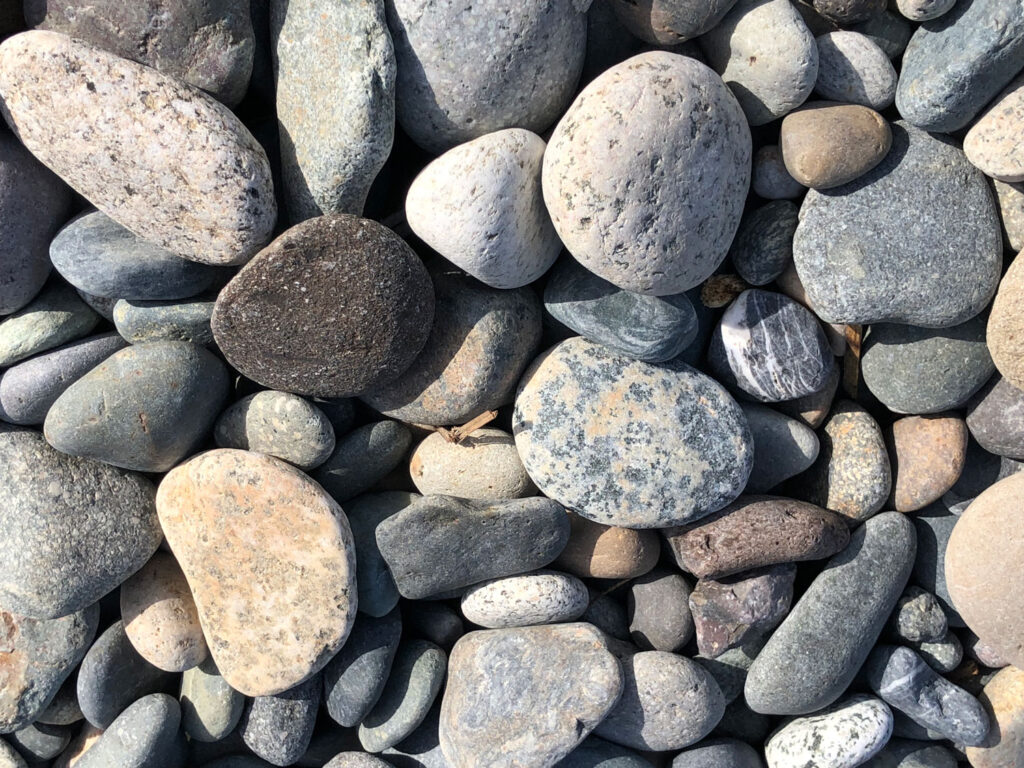
Sorry, the comment form is closed at this time.

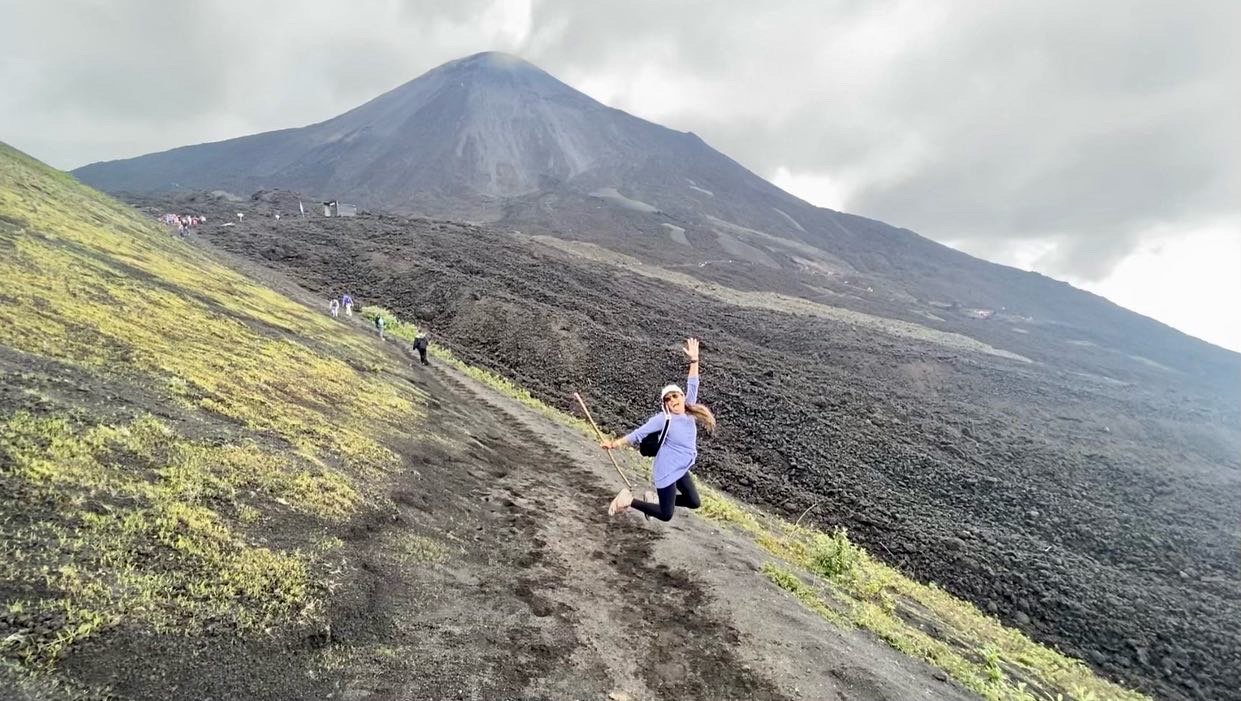
Caty Lillie
What a helpful and inspiring article! I so appreciate your thoughts here., as a fellow professional and mother. Microfreedom on!
Liz Jones-Dilworth
Thank you so much, Caty! I hope you relish some microfreedoms this week.
Kim
Micro-Freedoms….. I love it and am inspired to consider them throughout my day.
Loved the article
Liz Jones-Dilworth
I’m so glad, Kim!